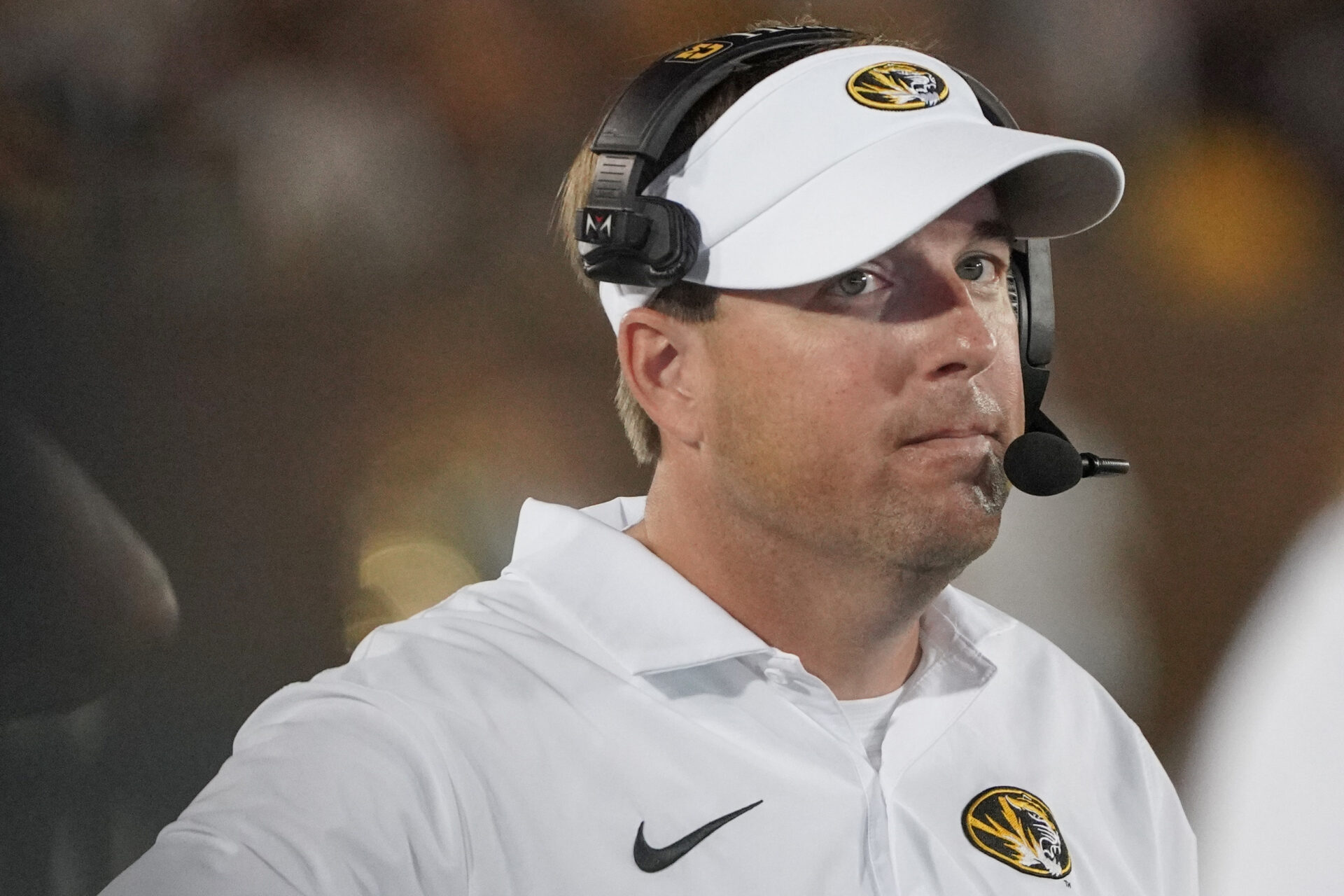The Southeastern Conference (SEC) recently released a detailed seven-page document asserting that its regular season schedule is the most grueling in college football, a claim that has stirred debate across the sport.
The report, shared recently during the SEC’s spring meetings, leans on metrics like Strength of Record (SOR) and Massey Ratings to argue that SEC teams face a uniquely challenging path each year.
Over the past 10 years, the SEC has only two teams outside the top 50 in average SOR, compared to eight for the Big Ten, nine for the Big 12, and 11 for the Atlantic Coast Conference, according to the document shared by Brett McMurphy.
This bold assertion didn’t go unchallenged. Illinois head coach Bret Bielema responded with a call for deeper analysis, suggesting that recent changes in college football, such as Name, Image, and Likeness (NIL) rules and the transfer portal, might have leveled the playing field.
Bielema’s comments drew a sharp response from Missouri head coach Eliah Drinkwitz, who took the opportunity to remind Bielema of his struggles during his SEC tenure at Arkansas.
Drinkwitz’s jab has only fueled the fire in this ongoing debate over which conference truly faces the toughest road, setting the stage for a fascinating showdown as the 2025 season looms.

SEC’s Strength of Schedule Claim Under the Microscope
The SEC’s document, presented during their spring meetings, used a decade of data to highlight the conference’s scheduling rigor. The report noted that only 13% of SEC teams fell outside the top 50 in SOR over the past 10 years, a figure that starkly contrasts with the Big Ten’s 34% and the Big 12’s 39%.
Similarly, the Massey Ratings showed the SEC with just two teams outside the top 50 in average rankings, compared to seven for the Big Ten and six for the Big 12. The SEC’s argument is straightforward: their teams consistently face tougher opponents, making their regular season a gauntlet unmatched by any other conference.
#MIZ is 2-0 vs big10 n last 2 years 🤷♂️ https://t.co/BmTwaUAYPQ
— Eliah Drinkwitz (@CoachDrinkwitz) May 30, 2025
Critics, however, have pointed out potential flaws in this narrative. Some argue that SOR and Strength of Schedule (SOS) metrics can be biased toward the SEC due to the conference’s historical reputation, which may inflate the perceived difficulty of their schedules.
Additionally, many SEC teams schedule weaker out-of-conference (OOC) opponents, a practice that has drawn scrutiny. For example, in 2025, Georgia’s non-conference slate includes Austin Peay, Marshall, and Charlotte, while LSU faces Louisiana Tech, Southern Louisiana, and Western Kentucky.
This has led to questions about whether the SEC’s regular season is as grueling as claimed, especially when compared to conferences like the Big Ten, which often schedule more competitive OOC games.
Bret Bielema’s Call for a Deeper Dive into the Numbers
Bielema, now the head coach at Illinois in the Big Ten, responded to the SEC’s claims by challenging the conference to analyze more recent data. He suggested focusing on the last two to three years, a period marked by significant changes in college football due to legal NIL and transfer portal rules.
A 2023 CBSSports article highlighted how these changes have brought greater parity to the sport, with talent distribution becoming more equitable as players can now transfer more freely and capitalize on NIL deals.
Bielema’s argument is that this new era may have diminished the SEC’s historical edge, as teams across all conferences can now attract top talent more easily.
Bielema also proposed examining head-to-head matchups between Power 4 conferences, particularly with a potential Big Ten vs. SEC challenge reportedly in discussion. This idea has gained traction among coaches, with LSU’s Brian Kelly expressing support during the 2025 SEC spring meetings, according to a report from sources.
KEEP READING: SEC Commissioner Greg Sankey Blasts CFP for Ignoring Strength of Competition: ‘The Rigor of Our Schedule Is Different’
Additionally, Bielema emphasized the importance of looking at the 2025 season’s results, including playoff and bowl games, to see how the SEC fares against other conferences in high-stakes matchups.
His challenge reflects a broader sentiment that recent trends, such as the Big Ten’s back-to-back national titles in 2023 and 2024, might call the SEC’s dominance into question.
College Sports Network has you covered with the latest news, analysis, insights, and trending stories in college football, men’s college basketball, women’s college basketball, and college baseball!

